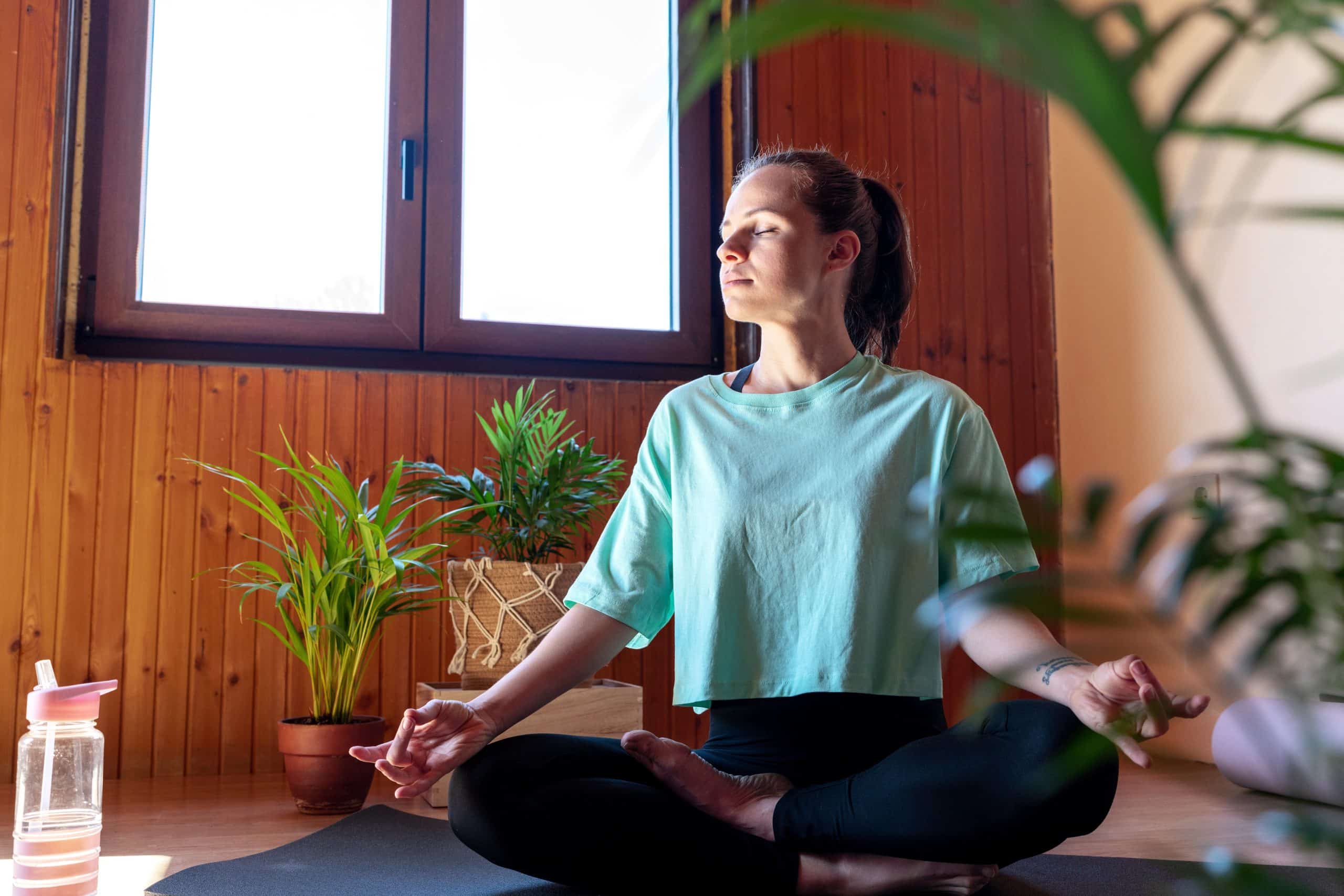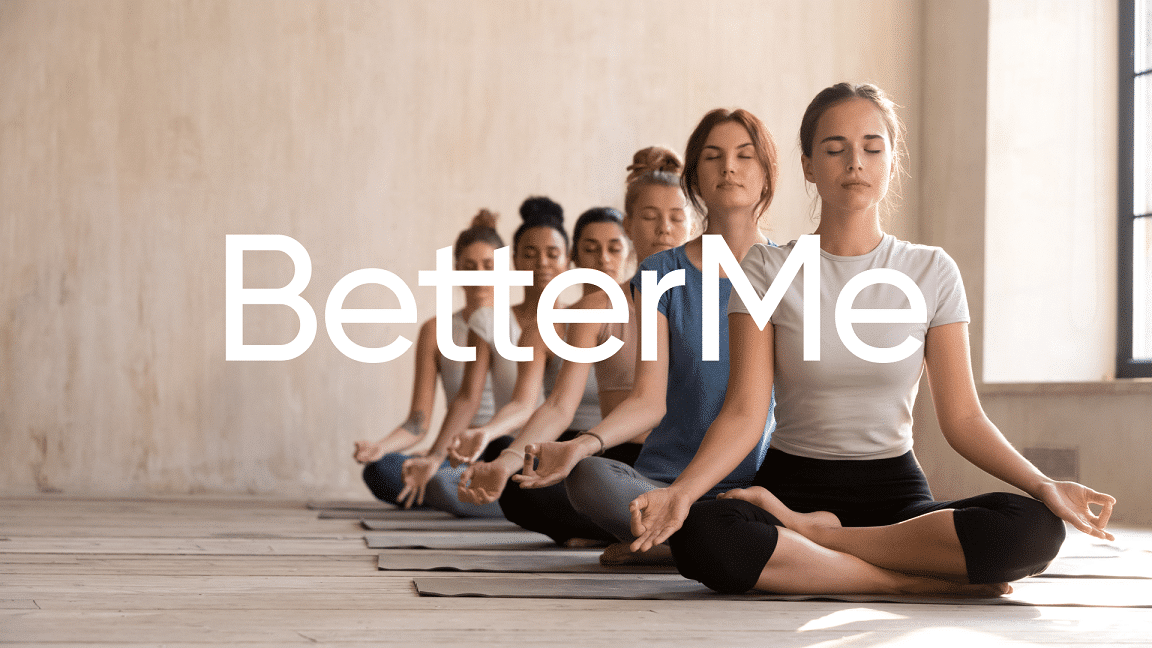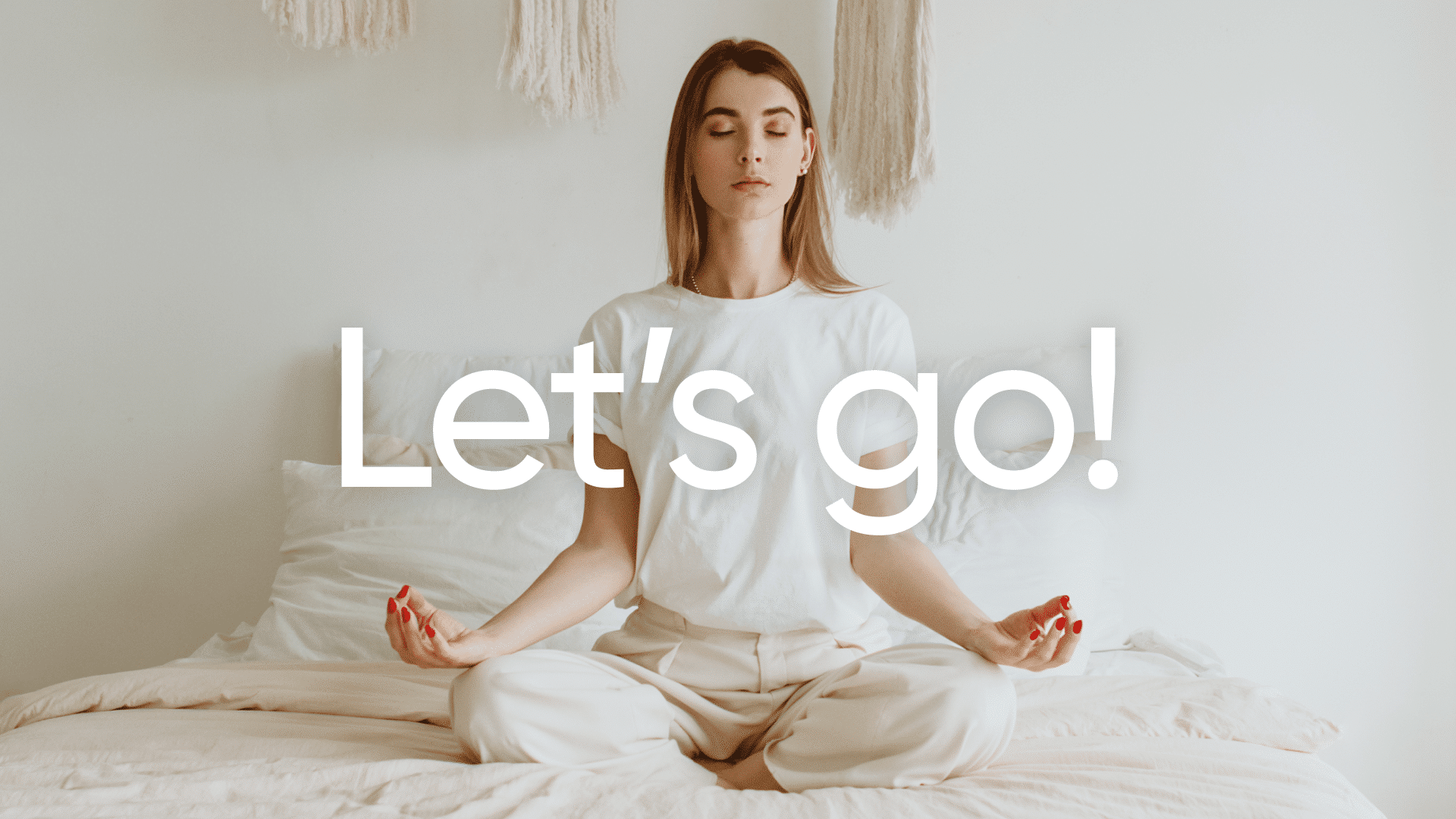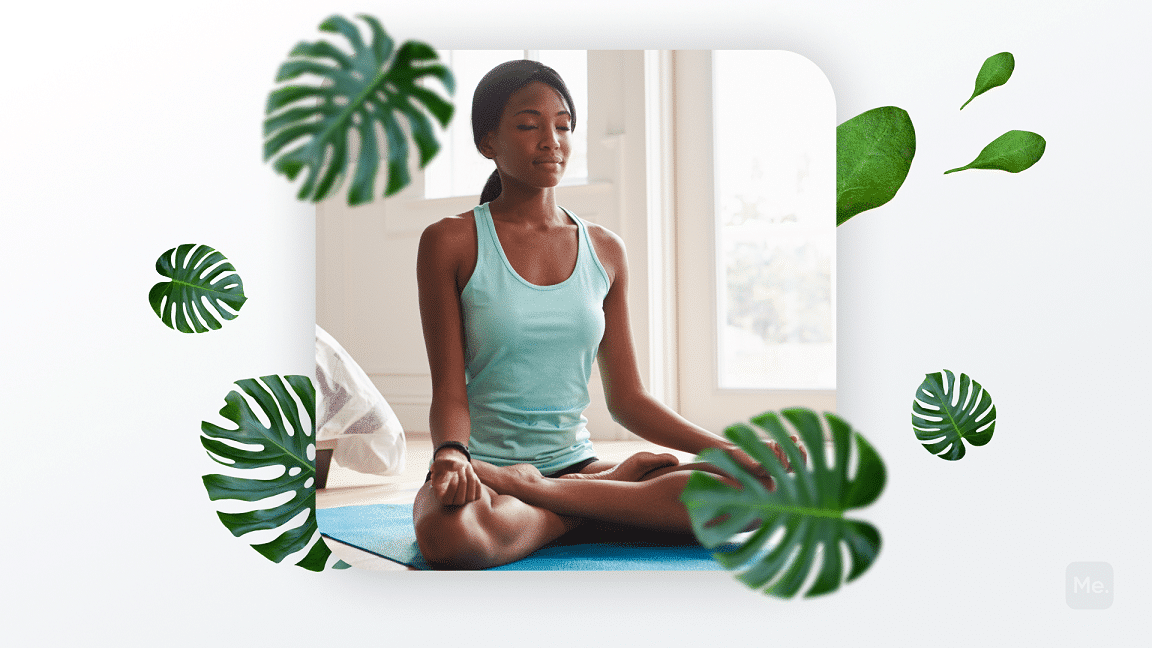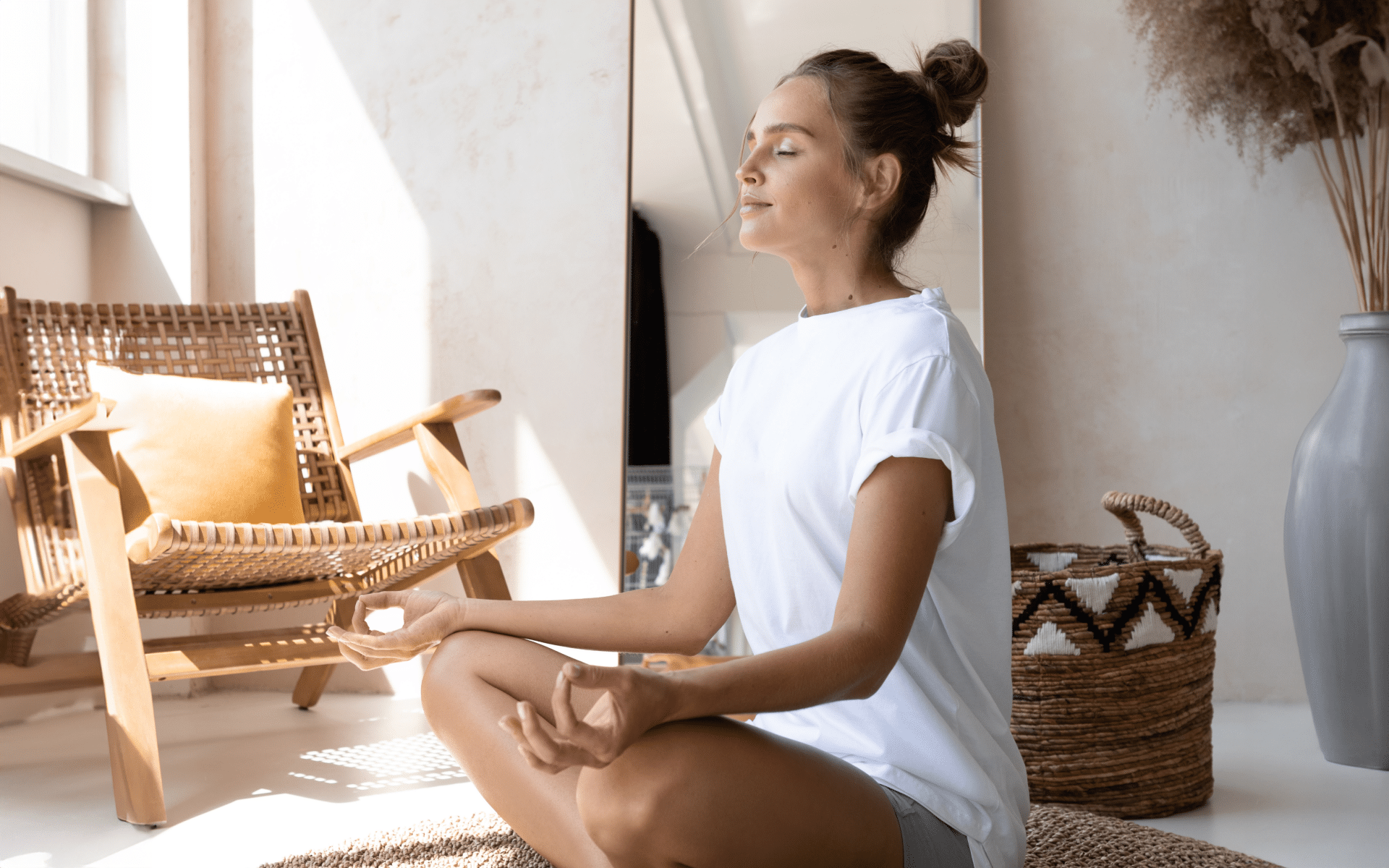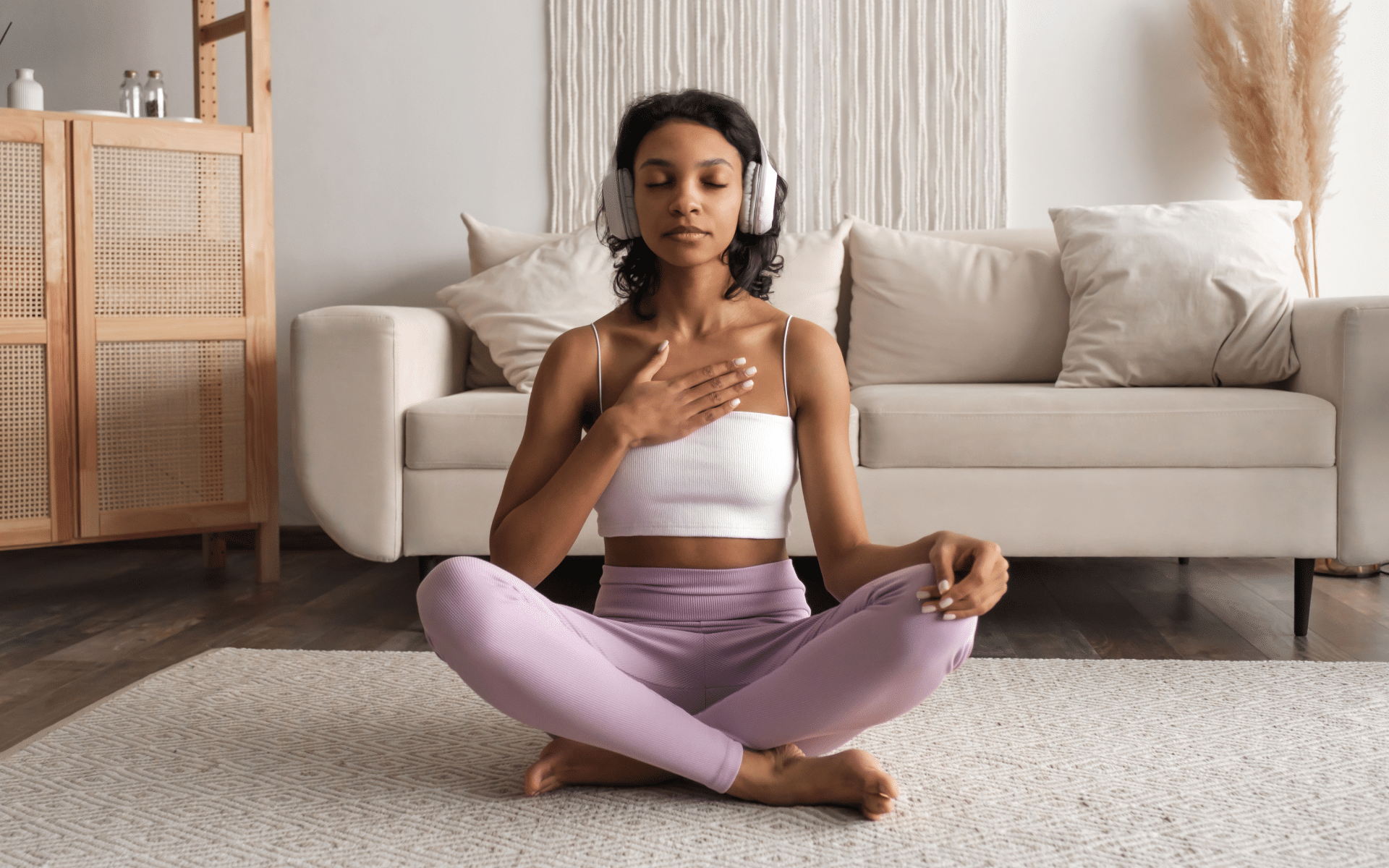Mindfulness offers a refreshing pause in a world that constantly demands our attention. It gives us an opportunity to reconnect with the present and cherish the beauty of our lives. The way to achieve mindfulness may vary from one person to another, but once you hit those chords of serenity, you may feel a whole new sense of self.
The chaotic daily work routines can make us feel stressed, depressed, and burnt out. Mindfulness is the break we need to re-establish the mind-body connection. This article explores various mindfulness activities that can help adults live healthy and happy lives. But first, we’d like to introduce you to mindfulness.
Keep reading this article to understand the concept and steps to achieve mindfulness amidst the daily hustle.
What Is Mindfulness?
Mindfulness is about being present in the moment and nurturing a strong relationship with our inner selves. It is about understanding our emotions and feelings and learning where they come from.
Mindful practices can increase self-awareness and create a holistic relationship with ourselves. In essence, mindfulness includes being fully present to where we are physically and consciously. It involves giving full attention to ourselves. Mindfulness is not just about taking a few deep breaths. In fact, it can help combat stress, anxiety, and chronic pain (6).
If you wish to reach into the deep crevices of your mind, take yourself out of the mental loop, regain balance, infuse yourself with optimism, and cultivate compassion – BetterMe: Meditation & Sleep app is exactly what you need!
What Are Mindfulness Activities for Adults?
The best aspect of mindfulness is that individuals of every age and background can achieve it. It doesn’t require any fancy setup or a particular place to practice. All you need is a quiet space, and you’re all set to feel at ease.
One of the best mindfulness activities for adults at home is guided mindfulness meditation (10). This practice is like a meditation buddy who helps you out. Instead of doing it alone, a trained guide or a recording will lead you through the meditation. This is particularly good if you’re new to meditation or find it difficult to do by yourself.
The guide talks you through it, telling you what to focus on, such as breathing or how your body feels. This can help you get into a calm and mindful state and is a little bit like having a friendly voice to guide you into relaxation.
In addition to deep breathing, you could try the following mindfulness activities for adults:
Creating a Gratitude List
Starting and ending your day by noting what you are grateful for can work wonders for your mental health (8). Write down all the things you’re thankful for, big or small, in your journal every day. With each passing day, add 3-4 more items to your list to remain consistent. A small tip is to start your day by writing a gratitude list to get a fresh and positive start.
Eating Mindfully
You don’t have to struggle hard to practice mindful eating. It primarily means altering your daily eating habits to make them conscious. For example, you could chew slowly, savor every bite, or listen to the pan sizzling. Some mindfulness tips include eating with your non-dominant hand, eating in silence, and eating in a distraction-free environment by switching off your TV or cellphone.
Similarly, try mindful cooking by allowing the process to unfold instead of rushing to the end. Focus on the cooking methodology, including different ingredients and sounds, such as sizzling or boiling. Savor the aroma as you blend and cook the food. Together, these elements will excite you to taste the final flavors.
Another popular mindful eating activity is the raisin exercise. This is a fun way to practice being more aware and present in the moment. All you need is one raisin and a few minutes of time.
It works by engaging all five senses. To do this activity, take a raisin and feel it in your hand. Focus on its color, texture, and shape for a bit. Pop it, feel the crunch, and taste the sweetness. Chew it slowly and notice any tingling sensations until it fully dissolves in your mouth. This is a great activity to channel your thoughts and keep you focused.
Mindful Gardening
If you’re passionate about gardening, you can turn that passion into a fun mindfulness activity. Feel present in the moment and do each task mindfully. For example, watering the plants or planting seeds.
Pay attention to the weather, and focus on the absence or presence of a breeze. Notice the smell of the rich dirt and the growing plants around you.
As you plant a seed, feel the texture of the soil and determine whether it is soft or rough. You can also evaluate the weather while you’re on this task. During this activity, you may also observe lifeforms around you.
Breathing Mindfully
If you’re sitting idle, you can practice mindfulness by doing mindful breathing exercises. Try the 4-7-8 breath technique (9). This is also beneficial for combating stress. Find a quiet corner and sit down. Press the tip of your tongue behind your upper teeth and exhale to push all air out of your lungs.
While maintaining this position, inhale through your nose for a count of 4. Hold your breath for a count of 7 and then breathe out of your mouth for a count of 8 while you make a whooshing sound. Do this mindfulness exercise for four breath cycles.
You could also try box breathing, inhaling for four counts, holding your breath for four counts, and then exhaling for four counts. Draw a box in your imagination with each side representing the four counts you do to practice mindfulness.
Read more: Mindfulness For Beginners: Learn To Navigate Your Inner World
What Are the Activities that Help You Practice Mindfulness?
Mindfulness is about living in the moment, so you can turn any activity into a mindful activity by focusing on it. Everyone is passionate about a certain thing. Not all people have the same “calling”. While you may feel elated while riding a horse, your friend may feel happy and elated on a starry night at the beach.
The key is to discover what makes you excited and make time to practice this activity in peace. However, if you’re looking for mindfulness activities for adults with anxiety, you may find it confusing as there are hundreds of options out there.
In that case, you could try the following actions:
Mindful Coloring
If you want to try a fun mindfulness activity, you could consider mindful coloring. Art is therapeutic, and color helps clear your mind. The act of choosing colors and creating patterns is calming and reorders the mind. Many coloring books for adults are designed to release stress and help you calm down.
Music Therapy
Do you love listening to music? Be mindful by absorbing the notes and completely living in the moment. Instead of screaming at the top of your lungs, allow the music to unfold over you and absorb the lyrics, the rhythm, and the sounds of the song. Feel how a particular song makes you feel.
Solving Puzzles
Get yourself an adult jigsaw puzzle and solve it slowly by finding the correct puzzle pieces. Puzzles are great for exercising your mind and helping you stay focused.
In addition to these activities, some specialized techniques could help you achieve mindfulness meditation. One of these is the body scan technique. This is one of the somatic healing techniques that enables you to focus on your body and the various signals it may send you.
With the increasing stress of daily life, we sometimes lose touch with our bodies and ignore the multiple cues. A body scan can reverse this by allowing us to focus on a particular body area and feel the root cause of pain. A body scan technique is best performed in a group under the guidance of an expert.
During a typical body scan session:
- Get ready: Pick a cozy spot to sit or lie down. If it feels right, shut your eyes. Inhale and exhale deeply to find your center and bring your focus to the here and now.
- Starting: Choose a specific spot on your body to zoom in on, such as your toes or the bottoms of your feet. Concentrate on this area, feeling any sensations—perhaps warmth, tingling, or tension.
- Step-by-step journey: Shift your attention gently from one part of your body to the next, such as by taking a slow and mindful stroll from your feet up to your head or vice versa. Explore your feet, legs, belly, chest, back, arms, and neck.
- No judgments allowed: While you pay attention to each part, notice any feelings without deciding if they’re good or bad. If you notice any tension or discomfort, recognize it without trying to change anything. The idea is to be curious and open-minded about each sensation.
- Breathe along: A few body scan routines involve syncing your breath with your focus. Inhale as you tune in to one area and exhale as you shift to the next.
- Finish it up: Once you’ve covered all the ground, take a moment to sit or lie quietly. Allow your attention to spread across your entire body. See how you feel as a complete whole (4).
You may also want to try the progressive muscle relaxation technique where you tense and relax different body parts, from your feet up to your head. This helps you spot and detect problem areas when you are relaxed.
What Are the Physical Activities for Mindfulness?
If you love going outside, you can try the following outdoor mindfulness activities for adults.
Mindful Walking
Make your quick trip to the grocery store mindful by focusing on the present moment. Focus on how your feet touch the ground and your body moves forward. This will help bring awareness to details you may not have previously noticed. In addition, mindful walking enables you to pay attention to your surroundings, such as how the air feels on your skin (2).
Mindful Dancing
Do you love dancing to the rhythm? Make your moves mindful by swaying to the beat attentively. You can also do group dancing sessions where you don’t need to follow a particular dance routine. This is best for feeling your body’s movements and how it feels in space.
BetterMe: Meditation & Sleep app can help you transmute stress into serenity, pull you up from the doldrums, free your mind from the cares and worries of the world, quell racing thoughts and infuse you with tranquility! Start using it now and change your life!
What Are Five Mindfulness Exercises?
Mindfulness exercises must be performed at least once a week to stay grounded and connected with our inner selves. They can make us feel happier, with less care and stress.
If you are new to this practice, the following list of mindfulness activities could serve as ideal mindfulness for beginners:
Mindful Journaling
Journaling is the best practice for letting our thoughts out and making us feel stress-free. Cultivate a habit of writing down your thoughts, feelings, and experiences in words daily. You don’t need to pressure yourself to write.
Make the process natural, and allow the words to flow from your mind and heart. You can start by writing down how you feel and what has been on your mind for the entire day. If you don’t know what to write, journaling prompts can help you.
Mindful Seeing
Not everyone has a creative imagination, so a lack of visual stimuli may be problematic for some people. You can try this activity alone or with a group. All it requires is a window with beautiful views of the outside. Sit at a window and gaze outside.
Pay attention to various objects such as birds sitting in a tree, a traffic sign, or people passing by. Do not label anything. Focus on their colors, size, shape, or texture. Focus on these objects as if you are seeing them for the first time in your life.
Do not critique them and try to simply observe them. The purpose is to be aware. If you zone out during the session, focus on the colors again to return to the present.
The Five Senses Exercise
If you’re stressed and in a hurry, try one of the 5-minute mindfulness activities for adults, such as the five senses exercise. The first sense is sight, so pay attention to five things you can see around you.
Focus on things you generally ignore, such as the lamp’s shadow. Then, pay attention to four things you can feel, such as the clothes on your body or sitting on a chair.
Now, notice three things you can hear: birds chirping, someone talking, or the TV running. Pay attention to two things you can smell right now, such as a perfume or natural odor. Lastly, notice one thing you can taste, such as a sip of water (3).
This will help you quickly enter the mindfulness state and relax for a while. You can do this before you deliver a presentation on stage.
Mindfulness doesn’t need to be physical. You can try online mindfulness activities for adults, such as laughter yoga. Laughter yoga is the best treat you can give yourself. It is generally done in groups where particular body movements are performed that lead to laughter. Laughing with your heart combats stress by releasing endorphins, the feel-good hormones (5).
Partner Breathing Technique
You don’t need to practice mindfulness alone. If you have a strong connection with your partner, use it to feel present in the moment. To do partner breathing, find a quiet corner and sit down facing each other. Put your hand on their chest and their hand on yours.
Take a deep breath and try to be in sync with them by inhaling and exhaling together. This can nurture the emotional bond and help you understand each other deeply (6).
You can also try eye gazing with your partner. This is about focusing on your partner’s eyes without judging them. It contributes to deepening the emotional and intimate bond. You can also do blindfolding, i.e. putting a blindfold on and removing all distractions in space. You can make this fun by doing it with your partner. It’s about how your body moves in space and propels forward.
This takes practice. Don’t be too hard on yourself if you find that you laugh. Keep at it, and before you know it, you’ll feel the benefits of this mindfulness exercise.
Bell Chiming
Bell chiming is one of the best mindfulness activities for adults. It focuses on the harmonious sound of bell chiming or Tibetan singing bowls. If you don’t have these, you can download an app. It works by focusing all your thoughts and attention on the bells chiming, which prevents your mind from wandering.
Move and Freeze
If you have children, you must try this fun mindful activity, the move and freeze game. In this activity, you keep moving until someone tells you to freeze. Hold your body in that exact position and feel your body in space and how your feet touch the ground.
Group Drawing
Drawing with your children is also a fun activity. This increases the parent-child bond and creates trust. To do this, set a timer for a minute and start drawing something on a sheet of paper.
After the timer sounds, pass the paper to the person next to you. Set the timer again, and the person will then add something to your drawing until the timer runs out. The same is repeated again. Focus on how you’re drawing and what you’re drawing.
How Can I Practice Mindfulness Daily?
You may feel overwhelmed right now and not understand where to start. Well, mindfulness is about taking it slow and not rushing anything. To practice mindfulness daily, you should start by noticing your thoughts (1).
Whenever a particular thought pops up, don’t react. Instead, acknowledge it and wonder where it came from. Be non-judgmental about it, as the goal is to increase self-awareness. As you gain control of your thoughts, you may fully understand where your thoughts are coming from, and your emotional intelligence may increase.
Another simple thing you can do is breathe deeply. Whenever you are idle, close your eyes and take a deep breath. Focus on your breath coming and leaving your body. This can help relieve stress and make you calm. You may also try to focus on one task at a time.
In the modern, fast-paced world, we juggle a lot of tasks at once. Rather than multitasking, focus on completing one task at a time. For example, if you’re eating, focus on the texture, smell, and taste of the food and keep your thoughts centered.
If you get a break between work, walk outside and practice mindful walking by taking slow, controlled steps. Observe the surroundings and the weather.
Finally, you can practice mindfulness daily by focusing on the present. When you daydream, snap back to reality by shaking your thoughts and concentrating on the present. You’ll gradually be able to better control your thoughts and emotions and feel connected with your inner self.
Read more: Mindfulness Meditation For Kids: Help Your Little One Cope With Stress And Quiet The Mind
FAQs
What is the difference between mindfulness and meditation?
While both terms are often used interchangeably, there’s a difference between mindfulness and meditation. Mindfulness is an awareness that allows us to pay attention to our surroundings and be aware of how our bodies feel, while meditation is a practice that helps us focus on our thoughts and calm our minds.
Is reading a mindfulness activity?
Yes, reading can be a mindful activity, depending on how you do it. To make it aware, read slowly by tracing every word and focusing on the word, its meaning, and the context. This helps you be in the moment and fully absorb the book you’re reading.
What can 5 minutes of mindfulness do?
Doing mindfulness for 5 minutes works wonders for mental well-being. It helps develop a positive mindset, increases self-awareness and compassion, and busts stress, which will make you feel happy and content.
The Bottom Line
Mindfulness is the best gift you can give yourself. It is about letting go of negative energy stress and cultivating a positive mindset. Try incorporating mindfulness activities daily to remain grounded. It is advisable to join group sessions to connect with like-minded individuals and practice mindfulness under the guidance of an expert.
DISCLAIMER:
This article is intended for general informational purposes only and does not serve to address individual circumstances. It is not a substitute for professional advice or help and should not be relied on for making any kind of decision-making. Any action taken as a direct or indirect result of the information in this article is entirely at your own risk and is your sole responsibility.
BetterMe, its content staff, and its medical advisors accept no responsibility for inaccuracies, errors, misstatements, inconsistencies, or omissions and specifically disclaim any liability, loss or risk, personal, professional or otherwise, which may be incurred as a consequence, directly or indirectly, of the use and/or application of any content.
You should always seek the advice of your physician or other qualified health provider with any questions you may have regarding a medical condition or your specific situation. Never disregard professional medical advice or delay seeking it because of BetterMe content. If you suspect or think you may have a medical emergency, call your doctor.
SOURCES
- 5 simple ways to practice mindfulness in daily life (2023, calm.com)
- 6 Ways to Enjoy Mindful Walking (2023, mindful.org)
- 21 Mindfulness Exercises & Activities For Adults (+ PDF) (2017, positivepsychology.com)
- Body scan meditation to reduce stress (n.d., headspace.com)
- Laughing Yoga: What Is It and Does It Work? (2021, healthline.com)
- Mindfulness in Relationships: Breathing Together (2022, psychcentral.com)
- Mindfulness Meditation and Psychopathology (2019, ncbi.nlm.nih.gov)
- Positive Psychology and Gratitude Interventions: A Randomized Clinical Trial (2019, ncbi.nlm.nih.gov)
- Video: Breathing Exercises: 4-7-8 Breath (n.d., drweil.com)
- What is guided meditation? (n.d., mindworks.org)
